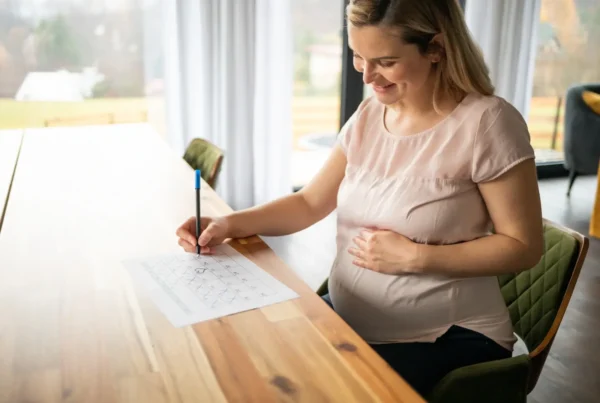In our country, every woman with Polish citizenship is provided with free medical care during pregnancy and the perinatal period. Thanks to a special act passed by the Polish parliament after the outbreak of the war, Ukrainian citizens who crossed the Polish border after February 24, 2022 have the same right. This means that pregnant Ukrainian women living in Poland can go to a clinic where they will be able to continue their pregnancy under the supervision of a specialist. In Poland, there is no zoning system, so it is enough for the expectant mother to register with a clinic that has a signed contract with the National Health Fund and provides primary health care services.
Coordinated care for pregnant women includes medical care for the mother at every stage of pregnancy, as well as during deliveryand the postpartum period, and also includes care for her newborn child – all covered by the National Health Fund (NFZ) insurance. In the event of health problems, a pregnant woman may be referred to a hospital where she will be admitted to the pregnancy pathology department. The same applies during childbirth – a woman can go to a maternity hospital of her choice, where she will give birth to her child under the care of specialists – her delivery, including by caesarean section, if medically indicated, and the hospital stay will be reimbursed as part of the care provided to every pregnant woman.
What does care for a future mother look like?
The scope of perinatal care is determined by the standards of perinatal care, i.e. the regulation of the Minister of Health. A woman has the right to free visits to a gynecologist and to tests ordered by a doctor. If the pregnancy is progressing normally, the pregnancy may be managed not by an obstetrician-gynecologist but by a midwife, who in Poland can order tests and health services in the field of perinatal care or issue prescriptions. If the pregnancy is pathological, the specialist may refer the patient to the pregnancy pathology department, where her health condition and the course of the pregnancy will be monitored. Complications include diagnosis of hypertension during pregnancy, preeclampsia, or the risk of premature birth.
Care for a pregnant woman includes about 10 visits to a doctor or midwife: at least two visits in the first trimester, three in the second and four in the third trimester of pregnancy. The first visit should take place before the 10th week of pregnancy. This is important not only from the point of view of the health of the mother and child (during the meeting, the doctor will provide the future mother with information on pro-health behaviors during pregnancy), but it is also a condition for receiving a one-off allowance, the so-called baby bonus, which is also available – according to the aforementioned special act – to Ukrainian women.
In addition to the one-off benefit, a woman expecting a child is entitled to free tests thanks to which a specialist can monitor her health and that of her unborn baby. Free perinatal care includes, among others, three ultrasound examinations and a fourth one – after the 40th week of pregnancy. They allow for the assessment of the condition and size of the fetus and the detection of any serious diseases or defects in the child. After each visit, the doctor also orders other tests, including a blood count and urine tests. A pregnant woman must take a glucose tolerance test once to rule out gestational diabetes – it is done between the 21st and 28th week of pregnancy, and a vaginal culture for B-hemolytic streptococci is also performed once (in the 33rd-37th week). Other tests performed free of charge as part of the care provided include: testing for syphilis (VDRL), HIV and HCV (hepatitis C), toxoplasmosis and rubella, cytology, and a test for anti-D antibodies in women with Rh (–) blood, i.e. a test to prevent serological conflict.
Community midwife care
In addition to health care, every expectant mother has the right to prenatal education and care from a community midwife, who is chosen by submitting a declaration at the clinic. This benefit is also reimbursed by the National Health Fund. Midwife care is available even before delivery: a pregnant woman can arrange a meeting at which she will learn how to take care of herself in the last months of pregnancy, how to prepare for childbirth and will receive up-to-date knowledge on caring for a newborn. Home visits with a midwife are available once a week from the 21st to the 31st week of pregnancy (maximum 10 visits) and twice a week from the 32nd week of pregnancy until delivery (maximum 16 visits).
The midwife also provides care to the patient after delivery. When a new mother returns home with a newborn, the community midwife will visit her twice as part of so-called patronage visits. These meetings should take place within the first 2 months of the child’s life, but the first one should take place no later than the second day after the birth of the baby is reported. During a care visit, the midwife who cares for a woman in the postpartum period will assess her health after pregnancy and childbirth and may remove stitches after a cesarean section or assess the wound after an episiotomy. He or she will also examine the newborn to see if he or she is suckling properly and gaining weight. If this is not the case, the mother will receive up-to-date knowledge about lactation from the midwife, assistance with breastfeeding and caring for the baby.



